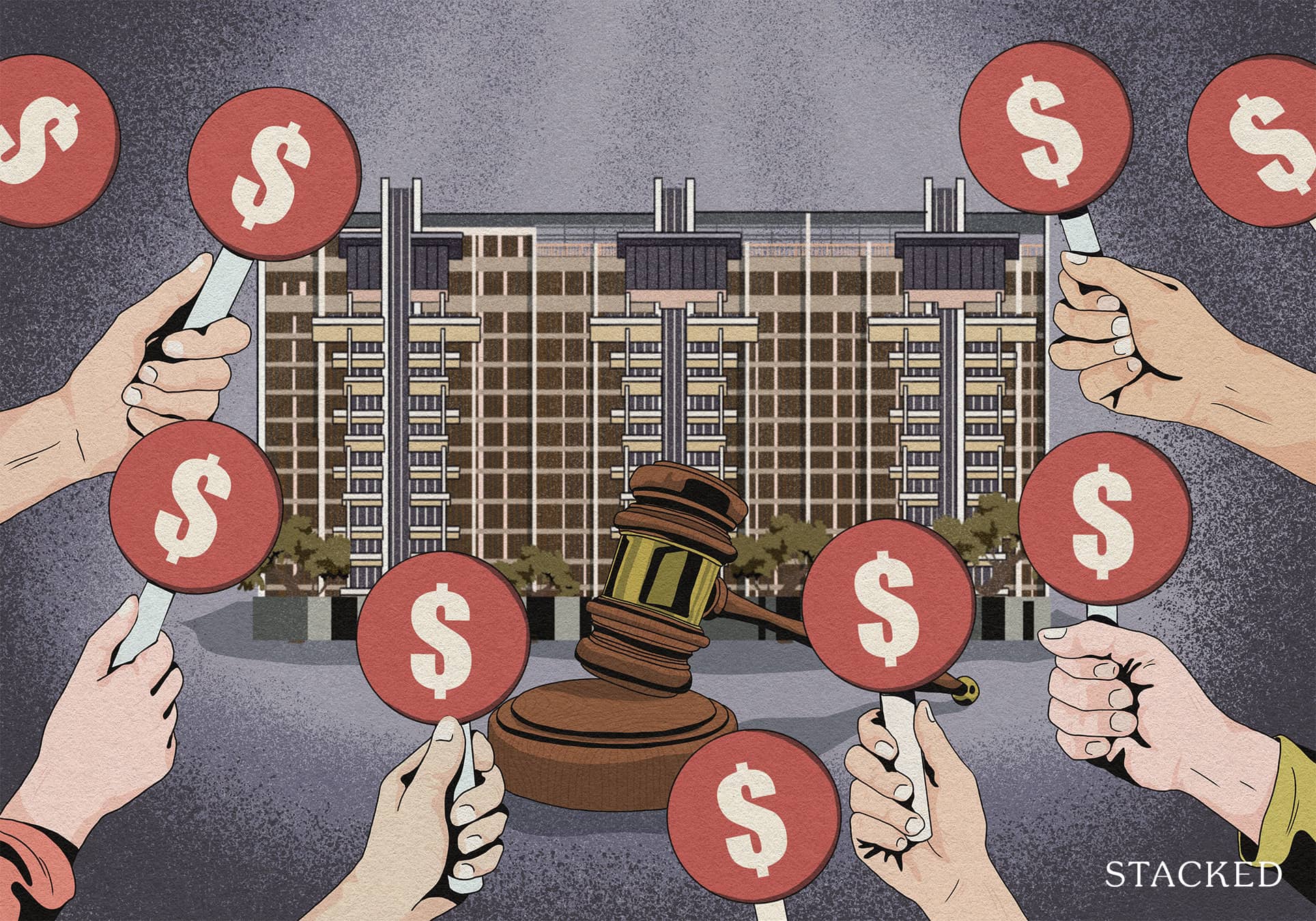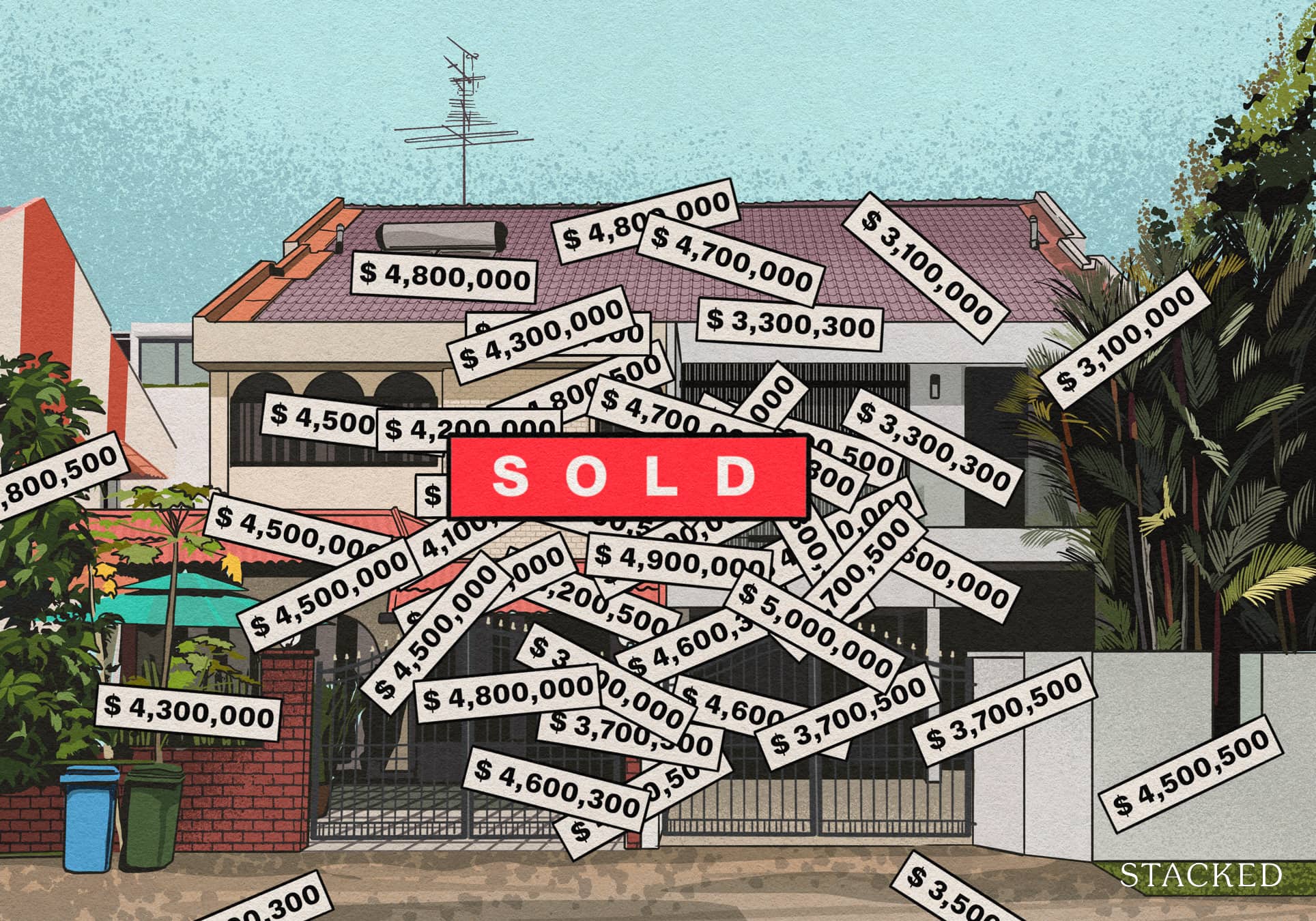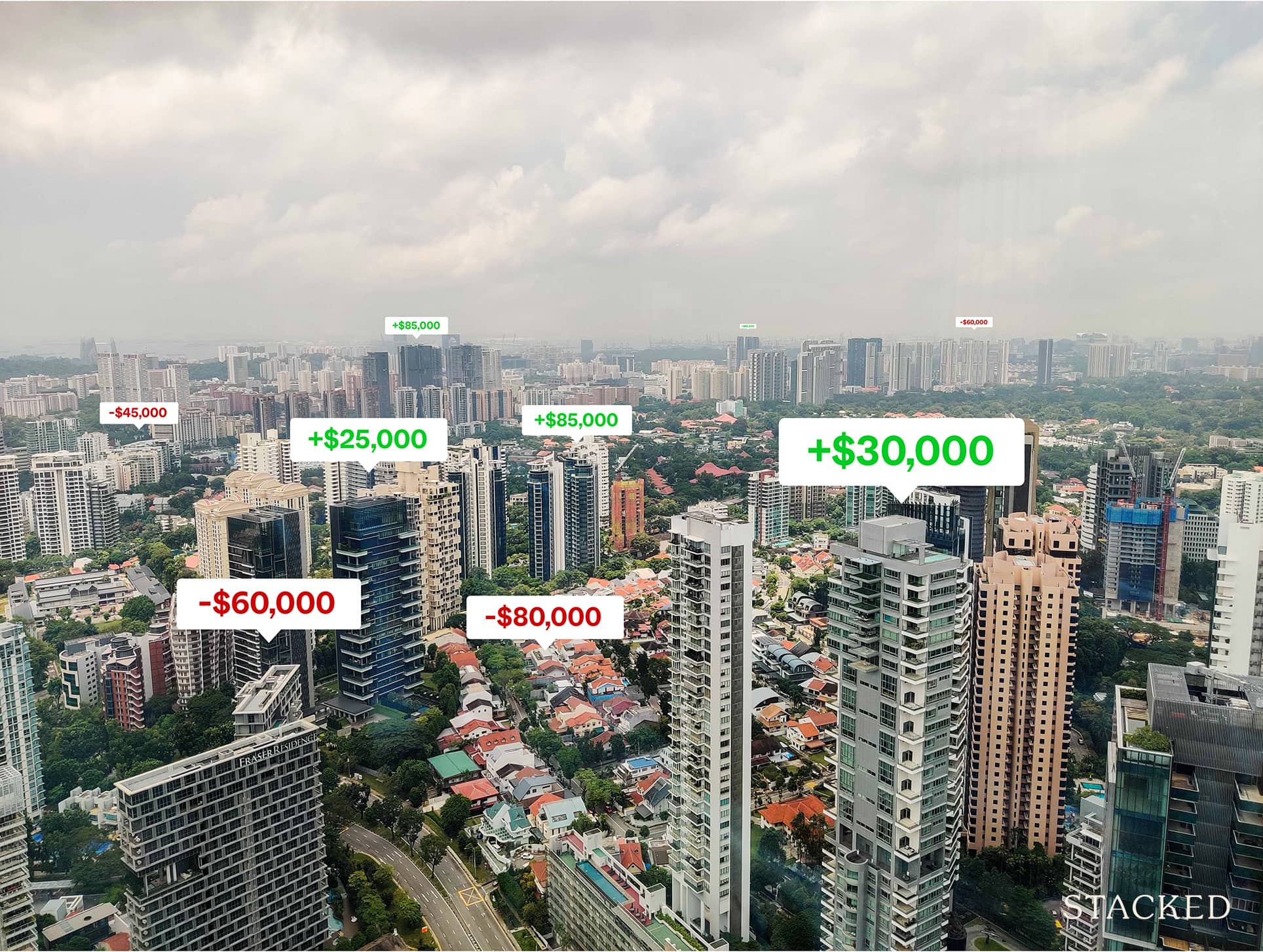6 Common Misleading Claims Property Agents Make That All Savvy Buyers Know About
November 27, 2023

Most property agents are honest, if for no other reason than having a license to lose. However, whether through inexperience or outright lying, we sometimes hear things that are questionable; if not just plain wrong. Not all realtors are equal, and sometimes, misinformation can also spread quickly in such a close community. And every now and again, you may come across a realtor who is willing to stretch the truth in rather extreme ways. Here are some things you should seriously question, whenever you hear them:
So many readers write in because they're unsure what to do next, and don't know who to trust.
If this sounds familiar, we offer structured 1-to-1 consultations where we walk through your finances, goals, and market options objectively.
No obligation. Just clarity.
Learn more here.
1. There are other interested buyers
The claim of having other interested buyers is a classic tactic in real estate, often used to create a sense of urgency and competition. (Although to be fair, this would definitely happen in all other industries when it comes to sales). Property agents may resort to this statement to nudge potential buyers towards making a quicker decision or to agree to a higher price. It’s a psychological play, leveraging the fear of missing out (FOMO) to push clients toward a commitment.

Similarly, agents representing sellers or landlords might assert they have ‘ready buyers’ or ‘tenants at hand’ to establish a sense of demand and desirability for the property. While this can sometimes be true, it’s often a strategy to persuade the property owner of the agent’s effectiveness and to justify their commission or fees. Some more shrewd landlords will ask for proof, but this is again easy to doctor and hard to ascertain if really true.
It’s hard to say how you can really guard against this, but one way is to see how many listings this agent has on hand. Don’t be taken in by the number completely, as sometimes they may just be listing indiscriminately (although this does come at a higher cost). Instead, look at each listing to see if they are the only agent marketing it – if they have a high number of exclusives it could mean that they do have a certain level of experience in working with sellers/landlords.
2. The agents of super-cheap listing X don’t want to disclose too much
Sometimes, you’ll see a listing that’s unusually low in price; perhaps around 20 to 30 per cent cheaper than the average for the area. But when you ask about it, the listing isn’t for sale anymore. If you press the agent with questions about who sold it, or why it was so cheap, you may be told the sellers are “really private” and they’ve been told “not to disclose more than is necessary.”
(And in case you’re wondering, yes, this sometimes happens to us and other realtors too, when we try to follow up on unusually priced listings.)

In these situations, the listing is often fake. The property agent likely put it up just to get inquiries (which they’ll redirect to other properties), or to test the market’s response to different price points. This sort of bait-and-switch isn’t allowed on property portals, but there’s little that these portals are doing to prevent such fake listings. There were apparently plans to assign a unique serial number for each property before it can be published online to counter this, but the last we heard was in 2021 so there doesn’t seem to be anything concrete as of yet.

If an agent is willing to resort to this kind of deception, you should consider whether you really want to work with them.
3. This is the cheapest property in the vicinity
We’ve seen such cases many times, from agents who claim that the property they are selling is the cheapest.
The thing about price psf is that, the bigger the unit, the lower it tends to be, and vice versa. For example, in a condo like Midtown Bay, a two-bedder may list at around $3,300+ psf, whilst a one-bedder may list at $3,590+ psf (also bear in mind listing prices are not actual transaction prices, but merely offers).

This means it’s not very fair to compare price psf, when it comes to units of different sizes. Price psf only becomes useful when comparing between very similar units, such as similar-sized units that are one floor apart in the same block.
It may sometimes also be used as a very general indicator, such as to gauge the overall costs in an entire development, or in an entire neighbourhood. But be careful of using it to compare two specific units; not least because the one with the lower price psf tends to be more expensive overall.
More from Stacked
The Essential Guide For First-Time Homebuyers: How To Pick The Right Property
Location, location, location.
(E.g., a 470 sq. ft. unit at $3,000 psf is about $1.4 million, whereas a 1,400 sq. ft. unit at $2,000 psf is $2.8 million.)
In general, beware of assertions that low price psf is an indicator of “value,” especially if the units being compared are very different.
4. We already collected thousands of cheques
This is commonly heard at new launches, to create a sense of urgency. You may even see people putting down deposits, which lends credence to the agent. But in reality, collecting the cheques doesn’t mean the units are already sold; keep in mind that some buyers can still back out, so units may be returned.

On top of that, numbers are sometimes fudged to give a sense of scarcity. You may be told, for instance, that only 10 per cent of the units are left. But this may mean 10 per cent of the units available at launch, not 10 per cent of the entire remaining stock. Developers may not put out every single unit during the first phase of the launch; they may, for instance, put out 300 of the first 800+ units.
(This is also to look good in media reports, as they can then report higher percentages sold on the launch weekend.)
Above all, don’t be pressured into putting down a deposit before you’ve handled other key concerns, such as finding the cheapest bank loan.
5. I specialise in this particular kind of property
Now don’t get us wrong, we understand that every property agent has to start somewhere – but there’s a huge difference between “I want to deal mainly with this market segment” and “Most of my transactions are in this segment.”

Many agents, some of whom are very new, aspire to target high-value properties like landed homes and luxury condos. They may justify their claims of “specialisation” by going for lots of training seminars specific to the property type; and we admit some have really done their homework.
But until the agent has multiple transactions with that type of property, it’s a stretch for them to claim specialisation. Certain elements can’t be learned academically, such as matching the vibe of a landed enclave* to a certain buyer, or having an established network of contacts.
These days, CEA has made it possible to check such claims. You can search an agent’s past transactions online, to check if they’ve made relevant transactions before.
*Landed areas can have very different lifestyle and community elements; living in Opera estate is very different from living in Cairnhill, or in the Changi enclaves.
6. This is a fast-moving market, so you need to act quickly
The assertion that ‘this is a fast-moving market, so you need to act quickly’ is a common urgency tactic used by some real estate agents. It’s designed to push potential buyers into making swift decisions, often under the pretext that they might miss out on a good opportunity if they delay. While it’s true that some markets or periods experience rapid sales, this doesn’t universally apply to every property or location.

For instance, while there have been periods of high demand and quick sales in recent years, not every property has been part of this fast-moving trend. The real estate market is nuanced and varies greatly depending on numerous factors like location, property type, and market conditions. As seen in recent new launches, while some properties like J’den sold quickly due to high demand or desirable features, others like TMW Maxwell or The Myst did not experience the same level of rapid sales.
This variation is also evident in the luxury market. Some luxury properties, such as Perfect Ten, have witnessed relatively quick sales, possibly due to their unique appeal or favourable market conditions. In contrast, others like Klimt Cairnhill have seen slower sales, indicating that the ‘fast-moving market’ narrative doesn’t apply uniformly.
For more on the Singapore property market, and ongoing trends and issues, follow us on Stacked. We’ll also provide you with in-depth reviews of new and resale properties alike.
At Stacked, we like to look beyond the headlines and surface-level numbers, and focus on how things play out in the real world.
If you’d like to discuss how this applies to your own circumstances, you can reach out for a one-to-one consultation here.
And if you simply have a question or want to share a thought, feel free to write to us at stories@stackedhomes.com — we read every message.
Frequently asked questions
Can property agents really have other interested buyers when showing a house?
Are listings with unusually low prices always genuine or can they be fake?
Is it true that a property being the cheapest in the area is a good deal?
Does collecting deposits mean a property is already sold?
Can real estate agents truly specialize in certain types of properties?
Is it necessary to act quickly in a fast-moving property market?
Ryan J. Ong
A seasoned content strategist with over 17 years in the real estate and financial journalism sectors, Ryan has built a reputation for transforming complex industry jargon into accessible knowledge. With a track record of writing and editing for leading financial platforms and publications, Ryan's expertise has been recognised across various media outlets. His role as a former content editor for 99.co and a co-host for CNA 938's Open House programme underscores his commitment to providing valuable insights into the property market.Need help with a property decision?
Speak to our team →Read next from Property Market Commentary

Property Market Commentary How I’d Invest $12 Million On Property If I Won The 2026 Toto Hongbao Draw

Property Market Commentary We Review 7 Of The June 2026 BTO Launch Sites – Which Is The Best Option For You?

Property Market Commentary Why Some Old HDB Flats Hold Value Longer Than Others

Property Market Commentary We Analysed HDB Price Growth — Here’s When Lease Decay Actually Hits (By Estate)
Latest Posts

Singapore Property News I’m Retired And Own A Freehold Condo — Should I Downgrade To An HDB Flat?

New Launch Condo Reviews What $1.8M Buys You In Phuket Today — Inside A New Beachfront Development

Overseas Property Investing This Singaporean Has Been Building Property In Japan Since 2015 — Here’s What He Says Investors Should Know





































0 Comments